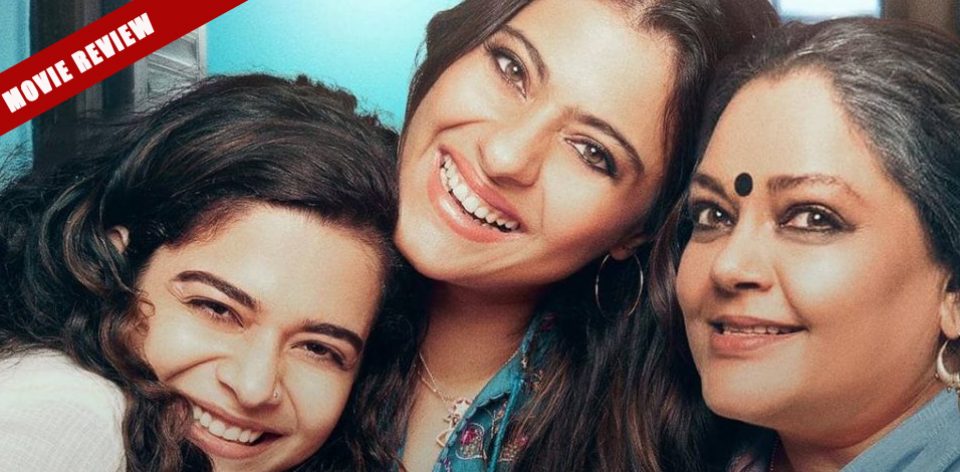Netflix opened its offices in India in 2016, but it has struggled to hold its ground with quality content. By erring on the side of too much nudity/obscenity and giving us substandard films with little or no engaging stories. Netflix has not been able to match its storytelling to Indian sensibilities. However, after watching their recent original film, I would like to believe that the streaming giant has finally managed to strike the right chord. I am talking about Tribhanga, a tale encompassing three generations of women with intertwined stories and their unconventional choices.
Tribhanga is an Indian drama that captures the complexities and emotional ties between three generations. Nayantara Apte (Tanvi Azmi) is a famous literary artist of her time (early 1980’s) who lived life on her own terms especially when patriarchy and social obligation were the world’s norms. In the process, though, she deprives her children Anuradha Apte (Kajol) and Robindro (Vaibhav Tatwawaadi) of their ideal childhood. Ironically, the same pattern follows Anuradha Apte (Kajol) when she makes her life choices, and we see its effect on her daughter Masha (Mithila Palkar). Connecting all three characters is Milan (Kunaal Roy Kapur), who is writing an autobiography on Nayantara’s life.
Making her OTT-debut, Kajol is flawless in portraying the character of Anuradha. Some might say that the character is eerily similar to many loud-mouth/quick-retort characters that she has played in the past, but I think she did a fabulous job. Mithila Patkar plays the role of a level-headed daughter Masha, and Tanvi Azmi plays an estranged mother to perfection. The fourth cog of the wheel and an important part is Renuka Shahane, the writer and director, who has borrowed many of her real-life experiences to weave a beautiful inter-generational story.
There was an air of familiarity while watching Tribhanga. I was reminded of the biopic film ‘Shakuntala Devi’ as both the films revolve around the struggle of a mother and daughter relationship. But let me take it a step further. Tribhanga is set within the realm of realism. While most Indian films have put ‘mothers’ on a pedestal who can do no wrong, Tribhanga portrays all three women as individuals who have dreams, passion, and their respective pursuits while balancing motherhood. All three characters are flawed, yet you understand why they made the choices they did. While watching the film, you don’t find yourself rooting for any single character. Instead, you root for the ‘mutual respect’ among the characters and its lack thereof. The film’s unnoticed theme is the social conditioning that gets passed down from one generation to the next and the need for honest communication between family members.
Although certain aspects of this film could have been better. I thought Anuradha’s pivotal moment of change was too short-lived to be believable. Even the flashbacks and scene sequencing were a bit confusing. Other storylines, such as why Anu’s father never wanted her or Masha following Baháʼí Faith were never completely explored.
Even though Tribhanga is far from perfect, I would still recommend watching it because, in times like these, we need films that help us understand that just because people make different choices, doesn’t make them necessarily wrong. Everyone’s truth is different from ours, and the film shows us how to respect such differences.
Reviewed by Puneet Ruparel






